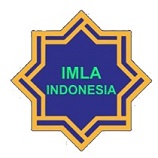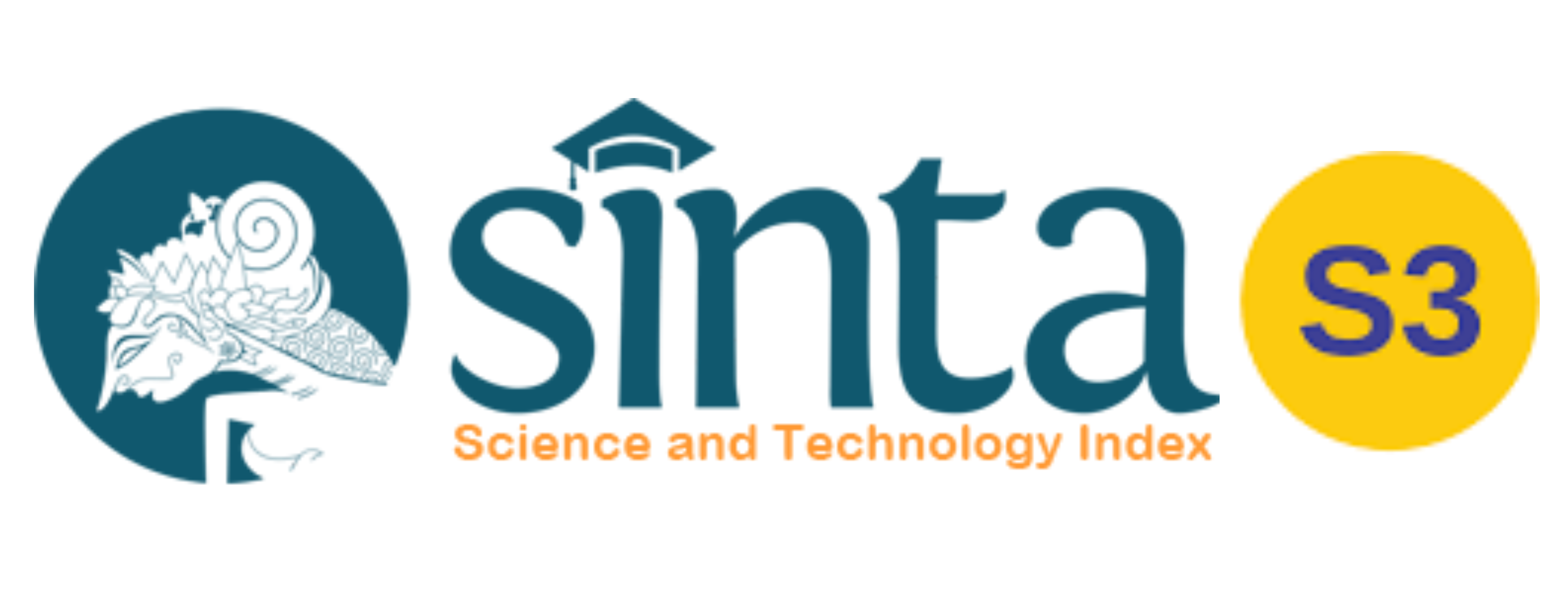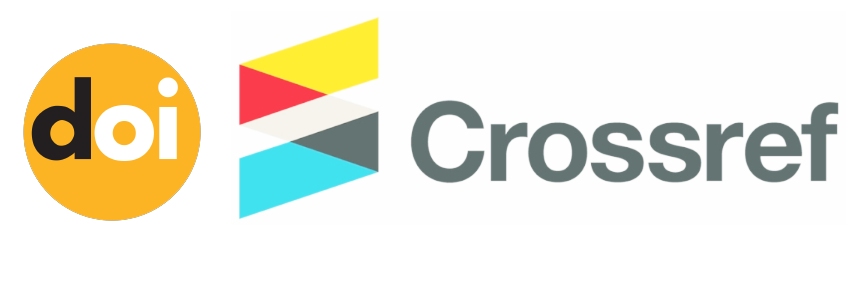THE STRATEGY OF HOUTHIS TO SEIZE CONTROL OF YEMEN'S TERRITORY: DISTORTION OF SOCIAL NORMS IN CONFLICT
Abstract
The Houthis' attempt at seizing control of Yemeni territory initially seemed like a protest against the presence of power. However, the Houthi rebellion grew louder and bolder until it crossed the boundaries of social norms. The Houthi group's efforts experienced increasing strong power dynamics, leading to a rising severe conflict. In line with the background, the researchers formulated three problem formulations: (1) How did the Houthis begin their efforts to seize control of Yemen's territory? (2) What are the factors that make the strategy of the Houthis a distortion of social norms in the conflict? (3) How do the dynamics of the Houthi power over Yemen play out in the distortion of social norms? This research is based on the argument that the Houthis are trying to distort social norms in Yemen. This research is a qualitative descriptive study. The technique used in data collection is reading and taking notes. The data analysis techniques in this study are data reduction, data presentation, and conclusion. This research indicates that the conflict between the Houthis and Yemen is an organized conflict of interest.
Keywords
Full Text:
PDFReferences
Agung, D. A. G. (2017). Pemahaman awal terhadap anatomi teori sosial dalam perspektif struktural fungsional dan struktural konflik. Sejarah Dan Budaya: Jurnal Sejarah, Budaya, Dan Pengajarannya, 9(2), 162–170.
Alkhan, M. H., & Ulinnuha, R. (2022). Criticism of The Palestine-Israel Conflict in The Novel “The Seven Good Years” Perspective Alan Swingewood. Jurnal CMES, 15(1).
Azizah, B. N., & Al Anshory, A. M. (2022). Konflik Sosial Dalam Cerpen “Tepi Shire” Karya Tawakal M. Iqbal: Analisis Sosiologi Sastra. Semantik, 11(1), 1–16.
Dahrendorf, R. (1958). Toward a theory of social conflict. Journal of Conflict Resolution, 2(2), 170–183.
Dahrendorf, R. (1986). Economic Growth, Governability, and Entitlements. Washington Quarterly, 9(4), 61–65.
Demartoto, A. (2010). Strukturalisme konflik: pemahaman akan konflik pada masyarakat industri menurut lewis coser dan ralf dahrendorf. Dalam Jurnal Dilema Sosiologi Issn, 215–9635.
Elnakib, S., Elaraby, S., Othman, F., BaSaleem, H., Abdulghani AlShawafi, N. A., Saleh Al-Gawfi, I. A., … Tappis, H. (2021). Providing care under extreme adversity: The impact of the Yemen conflict on the personal and professional lives of health workers. Social Science and Medicine, 272. https://doi.org/10.1016/j.socscimed.2021.113751
Fadilah, G. (2021). Implikasi Teori-teori Konflik terhadap Realitas Sosial Masa Kini: Tinjauan Pemikiran Para Tokoh Sosiologi. Journal of Society and Development, 1(1), 11–15.
Fawaid, A. (2017). Yaman Pasca Al-Rabî Al-Arabî:“Musim Semi Gerakan Islamisme” Dan “Negara Gagal.” Istiqro, 15(02), 323–350.
Firdaus, S. B. M. (2021). Faktor-Faktor Yang Menyebabkan Pelanggaran Ham Di Yaman Pada Masa Pemerintahan Ali Abdullah Saleh. Jurnal PIR: Power in International Relations, 5(1), 1–18.
Fuadi, A. (2017). Kepentingan Arab Saudi Menghentikan Gerakan Pemberontak Houthi. Jurnal Demokrasi Dan Otonomi Daerah, 15(1), 37–46.
Juneau, T. (2021). How War in Yemen Transformed the Iran-Houthi Partnership. Studies in Conflict and Terrorism, 0(0), 1–23. https://doi.org/10.1080/1057610X.2021.1954353
Maulana, M. S. (2018). Persaingan Kekuatan Saudi Arabia (Sunni) Dan Iran (Syiah) Pada Kasus Konflik Kontemporer (Suriah Dan Yaman). Jurnal Gama Societa, 2(2), 101–110.
Priambodo, S. (2017). Motif Intervensi Arab Saudi Terhadap Perang Saudara di Yaman. Jurnal Analisis Hubungan Internasional, 6(1), 205–216.
Putra, R. P., Jamilah, M., & Irawan, P. (2020). Intervensi Militer Arab Saudi Terhadap Konflik Yaman Untuk Membendung Pengaruh Iran Di Timur Tengah. Jurnal PIR: Power in International Relations, 4(1), 76–100.
Rahayu, N. P., & Fauzi, N. A. (2020). Intervensi Militer Arab Saudi terhadap Pemberontak Al Houthi dalam Krisis Yaman Periode 2015-2018. Balcony, 4(1), 25–37.
Rahman, R. F., & Munabari, F. W. F. (2017). Perubahan Sikap Masyarakat Yaman Terhadap Intervensi Dewan Kerjasama Teluk dalam Menangani Krisis di Yaman Pasca Kudeta Al-Houthi Pada Tahun 2014-2016. Balcony, 1(1), 91–100.
Saeri, M., & Charin, R. O. P. (2016). Kepentingan Iran Melakukan Intervensi terhadap Konflik Internal Yaman Tahun 2014-2015. Riau University.
Seliktar, O. (2021). Iran’s Geopolitics and Revolutionary Export: The Promises and Limits of the Proxy Empire. Orbis, 65(1). https://doi.org/10.1016/j.orbis.2020.11.008
Shalihah, F. A., & Sidik, H. (2021). Pelanggaran Hukum Internasional dalam Konflik Yaman Tahun 2015-2019 dan Akibatnya terhadap Situasi Krisis Kemanusiaan. Jurnal ICMES, 5(1), 22–42.
Taufiq, F., & Utama, L. W. P. (2017). Hegemoni Amerika Serikat Terhadap Arah Kebijakan Arab Saudi dalam Konflik Yaman Pasca Arab Spring 2011-2017. Jurnal ICMES, 1(1), 25–44.
Terrill, W. A. (2014). Iranian Involvement in Yemen. Orbis, 58(3). https://doi.org/10.1016/j.orbis.2014.05.008
Tualeka, M. W. N. (2017). Teori konflik sosiologi klasik dan modern. Al-Hikmah, 3(1), 32–48.
WISUKA, I. B. (2019). Intervensi Iran Terhadap Pemberontakan Al-Houthi Dalam Konflik Internal Yaman. Universitas Pembangunan Nasional Veteran Yogyakarta.
Zweiri, M. (2016). Iran and political dynamism in the arab world: The case of Yemen. Digest of Middle East Studies, 25(1). https://doi.org/10.1111/dome.12078
DOI: https://doi.org/10.20961/cmes.15.2.66442
Refbacks
- There are currently no refbacks.
Copyright (c) 2022 Center of Middle Eastern Studies (CMES): Jurnal Studi Timur Tengah

This work is licensed under a Creative Commons Attribution-ShareAlike 4.0 International License.
| Copyright of CMES ISSN 2085-563X (print) and ISSN 2502-1044 (online) CMES Journal is licensed under a Creative Commons Attribution-ShareAlike 4.0 International License. | CMES (Center of Middle Eastern Studies) Print ISSN: 2085-563X Online ISSN: 2502-1044 Website: https://jurnal.uns.ac.id/cmes/index Email: cmes@mail.uns.ac.id Published by: Arabic Literature Department, Faculty of Cultural Science, Universitas Sebelas Maret Ir. Sutami Street, No. 36A, Surakarta, Jawa Tengah 57126 Phone: +62 822-4000-2313 |















